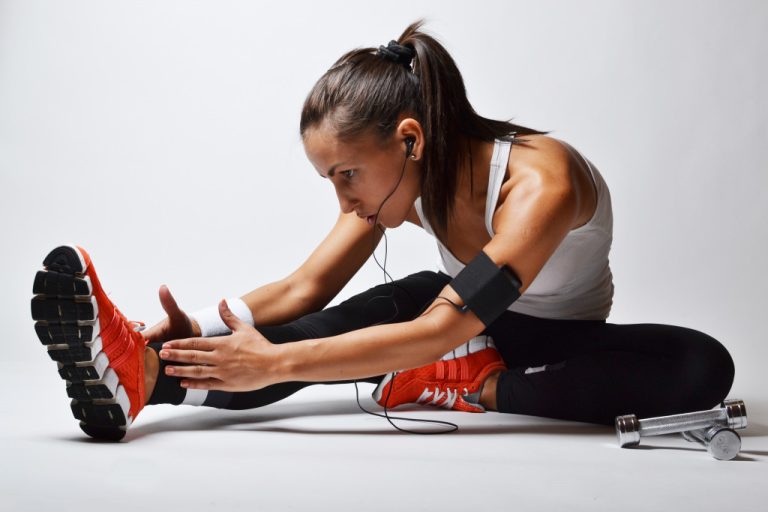- Tooth loss can lead to pain and decreased physical performance. Dental implants can help.
- Vision problems can affect coordination and balance during physical activities. Yearly checkups are important.
- Digestive issues like bloating or constipation can impede movement during exercise. Avoid unhealthy foods and maintain a healthy diet.
- Chronic pain from injury or underlying conditions can limit physical performance. Alternative therapies can help manage the pain.
- Mental health issues can significantly affect physical performance. Mindfulness and therapy can help manage mental health.
Do you ever find yourself overwhelmed with unexpected health issues that seem to come out of nowhere, interrupting your daily routine and preventing you from enjoying your favorite physical activities?
Whether you’re a health enthusiast or just an active young person trying to keep up with the game, knowing that some health issues may cause unexpected disruptions to your physical pursuits is important. In this blog, you will learn about a few surprising health issues that can affect your physical activities.
Tooth Loss.
Did you know that losing a tooth can have a significant impact on your physical activities? It’s true! Even if you have a single missing tooth, it can create a domino effect leading to other tooth loss, pain, or even bone loss in the jaw. If you’re into fitness or sports, this can hugely impact your overall physical performance. To avoid this, it is essential to take good care of your dental hygiene.
If you already have tooth loss, you should seek the help of an experienced periodontist that specializes in providing dental implants. They can replace the missing tooth with a prosthetic that is made to be as durable and natural-looking as your original teeth. This should help you get back to your physical activities without any additional pain or discomfort.
Vision Problems.
Your eyes play a vital role in your coordination and balance. Therefore, any vision problem can affect your body’s stability and ability to perform physical activities. Eye problems such as blurry vision, double vision, or even cataracts can impede your ability to enjoy activities like cycling, running, or playing ball games. It is essential to keep up with yearly eye checkups and seek medical attention to detect any potential issues early.
Digestive Issues.

Digestive problems can be extremely uncomfortable and can have a massive impact on your daily routine, particularly when you’re striving towards a consistent workout regime. Bloating, indigestion, or constipation might prevent you from running or doing any exercise that requires movement. Avoiding unhealthy foods or high-fat meals, drinking enough water, and sticking to a healthy diet plan can help avoid digestive issues and keep you on the move.
Chronic Pain.
Persistent or chronic pain can interfere with your physical activities, regardless of whether it’s due to injury, old age, or underlying conditions such as arthritis or fibromyalgia. Often, painkillers like opioids prescribed to relieve such pain can limit your physical performance and energy levels. Instead, try alternative therapies like physical therapy, chiropractic care, or acupuncture to manage the pain.
Mental Health Issues.
Your mental health is a crucial part of your overall well-being, and issues like anxiety, depression, or stress can significantly affect your physical performance. If your mental health problems are severe, it can be challenging to get off the couch and get involved in any physical activity. Here are some activities you can do to keep your mental state as healthy as it can be:
Practice mindfulness.
Mindfulness is a powerful tool to manage stress and anxiety. Take time every day to sit quietly and focus on your breathing, or try yoga or meditation for an added benefit.
Get enough sleep.
Getting enough rest is essential for optimal mental and physical health. Make sure you practice good sleep hygiene habits, like avoiding electronics before bedtime and maintaining a consistent sleep schedule.
Choose physical activities that you enjoy.
Exercising can be one of the most powerful tools for managing mental health issues. Find activities that you enjoy, such as swimming or biking, and make sure to set small goals for yourself to stay motivated.
Talk to a mental health professional.

If you feel like your mental health issues are too much to handle, don’t be afraid to reach out and talk to a professional. A therapist or counselor can help you address the underlying causes of your mental health problems and learn the strategies to manage them better.
By taking steps to achieve a healthy mental state, you can be sure that your physical activities won’t suffer. Remember, the key to being successful in any physical activity is to stay healthy in body and mind!
From tooth loss and vision problems to digestive issues and chronic pain, there are many things you should look out for when engaging in any type of physical activity. Additionally, don’t forget about your mental health. It plays a vital role in overall well-being and performance.
Taking care of yourself through healthy dieting, mindfulness practices such as yoga or meditation, getting enough restful sleep each night, and talking to a mental health professional if needed will help ensure that you stay healthy both mentally and physically so that nothing gets in the way of enjoying life’s most rewarding activities!












